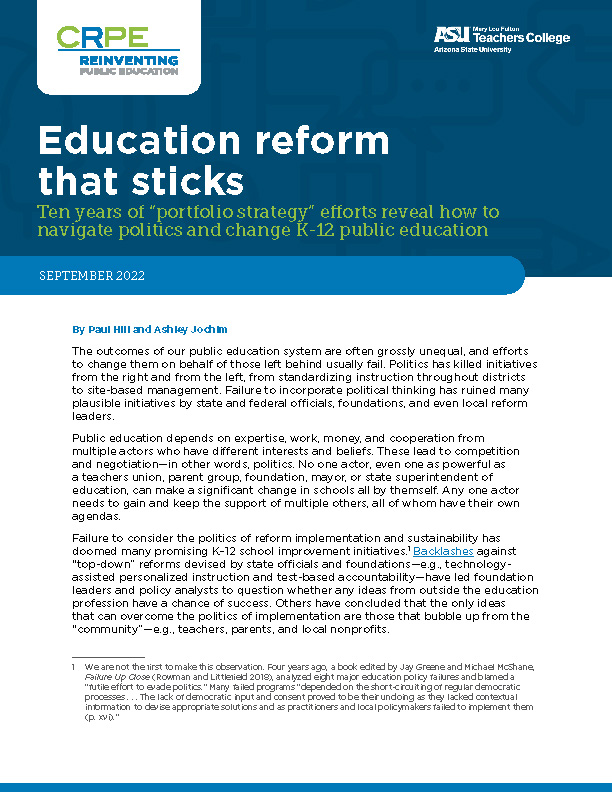Public education depends on expertise, work, money, and cooperation from multiple actors who have different interests and beliefs. These lead to competition and negotiation—in other words, politics. Failure to consider the politics of reform implementation and sustainability has doomed many promising K–12 school improvement initiatives.
This paper analyzes more than 10 years of data on the implementation of the portfolio strategy to identify practical lessons on managing the politics of reform K-12 schools. Sustaining complex reforms like the portfolio strategy in a political environment requires leaders to:
- Continually seek new supporters and renew the support of existing ones.
- Expect and prepare for attacks and be alert to the unnecessary harms caused by their own actions, which bolster opposition
- Develop information strategies that document intermediate results, alert leaders to emergent problems and actively counter hostile narratives
- Be attentive to competing agendas and political liabilities within their own alliances
- Prepare for leadership succession so that reforms have a chance to last long enough to make a difference
These observations challenge the conventional wisdom that sustainable reforms can be built only upon the percolating up of good ideas and initiatives from below. Reform leaders are essential to knitting together fragile coalitions who may be motivated by different goals and aligning new programs and initiatives—and politically reinforcing them over time—so their benefits can accumulate.





